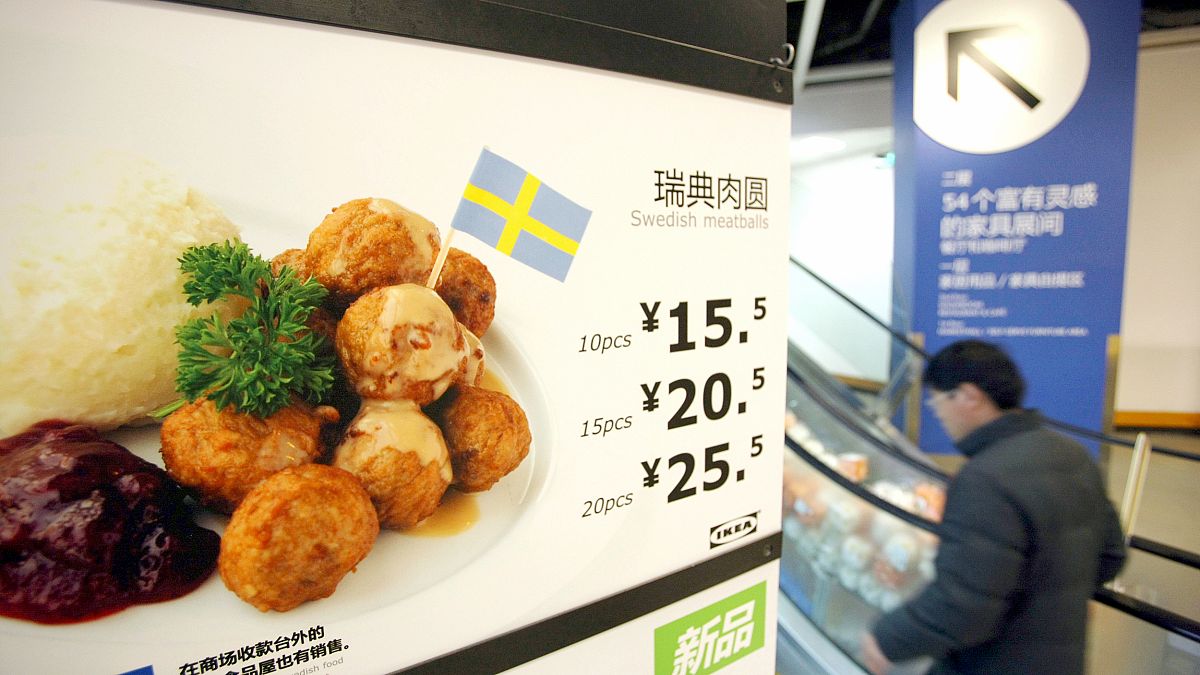The history of food and so-called "national dishes" is a story of human hunger and interdependence.
By Michael Twitty
The conversation about cultural appropriation has become both ubiquitous and exhausting, even for those like me who believe that it's a real and pernicious phenomenon. The problem is that most people don't distinguish between appropriation and its happier cousin, cultural diffusion — which, in this moment, needs a shining spotlight.
Things have been going haywire for a year now. French fries are actually Belgian, waffles are not as Belgian as you think and then last week came the revelation that Swedish meatballs are historically rooted in a Turkish recipe.
Call this a teachable moment for getting a grip on all verifiable knowledge: Food origins and the journey that foods take to our tables are a real lesson in our collective humanity.
In this case, military action led to the Swedish king having the Turkish köfte and, with a few adjustments, "Swedish" meatballs were born. But many of the inherently "national" dishes we celebrate are less the product of indigenous fare and more the result of war, intermarriage, famines, trade, allegiances, colonial subjugation and alliances.
In a moment of intense Western ethno-nationalism we would be wise to look deeper at this phenomenon, both in terms of the cultural diffusion and people's reactions to it. Humanity has always been an interdependent species, whether it manifests as convivial sharing or outright exploitation. Those who posit that the West really doesn't need "the rest" would be wise to do a little experiment: Cut out every food ingredient that doesn't come specifically from Western or Northern Europe and you're in big trouble. Get ready for sea vegetables, reindeer, a few berries and a severe dearth of herbs and spices.
Without the indigenous peoples of the Americas, for instance, an extraordinary array of food would be absent from the global table — not just the ingredients, but recipes and ideas about food. The Aztec and Inca empires are represented in every single American eater and on every American table, and you can't get by in any kitchen on the continent without speaking a little Nahuatl (tomato, avocado, to start) every day.
Northeastern Africa, Southwest Asia (the Fertile Crescent), Southeast Asia and West and Central Africa matter in our diets, too, whether we know it or not. Beer is from the Nile Valley; bananas are Latin American by way of West Africa by way of Southeast Asia; there is no hot sauce without Mesoamerican chilies and no cola or coffee without Africa. At this point we are all Nigerian okra and Thai fish sauce, Cantonese soy sauce and Algerian olives, Mexican jicama and Iroquois maple; products of a humanity always in search of satisfaction.
Turkey, like Mexico, is one of the culinary powerhouses of the human story — it observed, absorbed and remixed the foods of the Anatolian peninsula with its neighbors, and often they did the same.
The global food story is remarkably interesting because it tells a lot about our inner workings as a species: We are inherently hungry, we get bored, we like being outside our bubbles, we prioritize in taste and aesthetics what we cook. That's what makes food history so fascinating, because we not only learn what we have in common, but, by looking at the names, flavors, ingredients and history of dishes, we get into the inner workings of our ancestors beyond just "What's for dinner?"
So not everything is cultural appropriation, though it does often travel with cultural diffusion. The way I think of it, in a healthy multicultural society, diffusion takes the lead; in an unhealthy one, marred by inequality, appropriation does.
So instead of being weirded out that Swedish meatballs are not "originally" Swedish, we should be happy to take our curious minds on the circuitous journey that led a Turkish classic to be the national dish of a Scandinavian land (and then, much later, shared with the world at a warehouse for cheap, ready-to-assemble furniture).
We could all use a history lesson on the value and worth of the cultures and peoples with whom we share this planet. At a time when nativist and isolationist rhetoric are threatening to divide us more, our plates can remind us we've never really sat at different tables, and we just need to keep making room.
Michael Twitty is a culinary historian and food writer from the Washington D.C. area. His first major book, The Cooking Gene (HarperCollins, 2017), won the James Beard Foundation's 2018 Book of the Year and Best in Writing awards.
Opinions expressed in View articles are not those of euronews.
